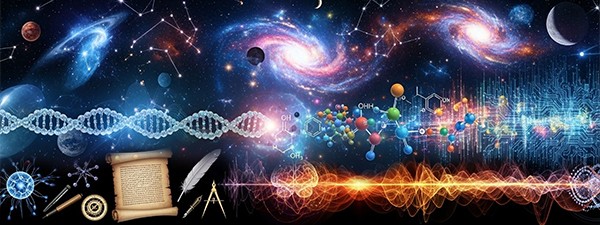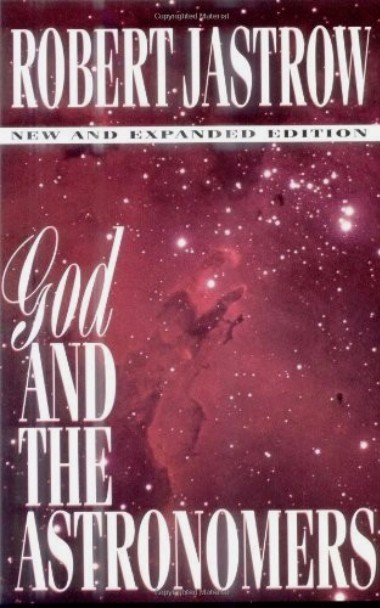Knowns, Known Unknowns, & Unknown Unknowns

Knowns, Known Unknowns, & Unknown Unknowns
When I was in first grade at Beaver Elementary, my class began learning the essentials of math. My teacher started off by illustrating the basics of addition and subtraction. She assured us there was nothing lower than zero. After all, we couldn’t take away five apples from four apples if we only had four apples to begin with. We believed her.
Granted, what she was teaching didn’t meet the test of Truth but it was all our young minds could absorb at the time. Once we’d assimilated the basic principles of math, later teachers would guide our developing intellects down more entangled paths of truth (like finding “X”) which we were finally ready to struggle through.
Over the past few years, I’ve become addicted to the Great Courses Series on Audible. The series includes college level lectures on various topics, including biology, chemistry, genetics, neurology, astronomy, classic physics, quantum physics, world history, and cognitive psychology — so, essentially, everything I tried to avoid in college.
Even though the topics vary immensely, a single thread runs through them all. That thread is the search for Truth. It’s based on the fact that everything we encounter can eventually be understood via the scientific method of rational, objective observation of repeatable principles within nature. The hitch is that you and I (and every scientist) are neither totally rational nor vaguely objective. Every one of us harbors our own agenda, skewing our personal perspective in favor of our individual egos.
The work-around in scientific circles could be considered brutal but it’s essential if we’re going to arrive at objective Truth — or as close as we can get to it with our limited knowledge. Researchers post their findings via various media and then brace themselves for the onslaught of criticisms from diverse professionals in their same research arena.
Sometimes, the crux of their research survives the critiques, while the flaws get scoured away — much like the paint jobs our cars sustain the power of the car wash spray while the dirt and grime get removed. Sometimes, their entire theory goes down the carwash drain because it couldn’t withstand scrutiny.
Rarely, an advanced thinker like Albert Einstein comes along and throws out a concept like general relativity which scrambles everybody’s brain but withstands all scrutiny and produces what we naively call a “law”, primarily because we don’t yet know enough to refute it. Perhaps we never will know enough to refute it and it really is a “law”, but perhaps, like my first grade class, we’re just not yet ready to grapple head-on with absolute Truth.
At the end of the day, there is the absolute Truth that a far superior entity employed to ignite the Big Bang. That Truth divides neatly into three categories. There is that which we “know” (or at least think we understand). There are the outlying mysteries which we know exist but don’t yet have the answer to. And then, there are the “unknown unknowns” — mysteries so deep that they have eluded our observation.
There’s no such thing as “certainty” in this life but at least there’s an trustworthy principle for separating our agenda from Truth. I first encountered it while standing in a bookstore aisle, reading a nine-dollar book I didn’t have the money to purchase back in 1979. A scientist named Robert Jastrow, posited that Truth never negates Truth. If any two things are both true and we fail to see the harmony of their existence, it is our intellect that is limited, not the Truths themselves.
What might happen if we set aside our personal agendas and collaborated to understand the Truth behind our own existence?
 Let’s talk. I’d really like to hear what you have to say, and it might even give me something to write about. Email me at guy@lawsoncomm.com.
Let’s talk. I’d really like to hear what you have to say, and it might even give me something to write about. Email me at guy@lawsoncomm.com.
I’ll buy you coffee and we can compare notes. I promise not to steal your ideas without permission.
![]()
For the scientist who has lived by his faith in the power of reason, the story ends like a bad dream. He has scaled the mountains of ignorance; he is about to conquer the highest peak; as he pulls himself over the final rock, he is greeted by a band of theologians who have been sitting there for centuries.
— Robert Jastrow

Did someone forward this newsletter to you after reading it themselves? Don’t settle for that!
CLICK HERE
to get a fresh, unused copy of this newsletter sent directly to you every Sunday morning. If you decide it stinks, you can always unsubscribe.

God and the Astronomers
— Robert Jastrow
If you think Jastrow is another pop-Christian author, looking to make some money from religiosity, think again. He was a life-long agnostic astro-physicist who joined NASA in 1958 and founded the Goddard Institute for Space Studies. He went out on a limb to publish this book in 1978 and took a lot of criticism from his colleagues. Above all else, his search was for truth and this book has outlasted every criticism leveled at it. The only bad news is that it’s not available on Audible.
A meeting of great minds who think alike












